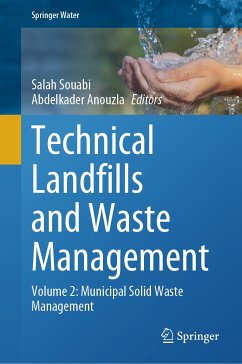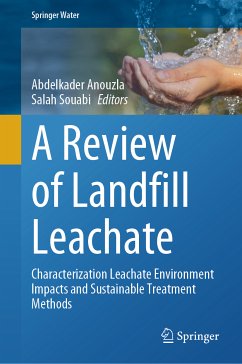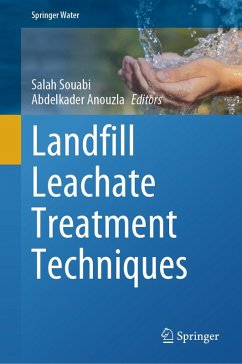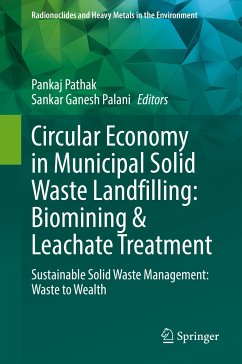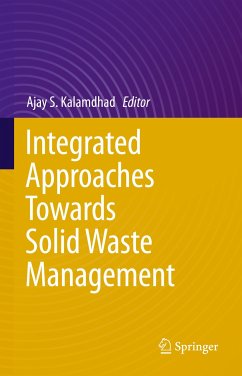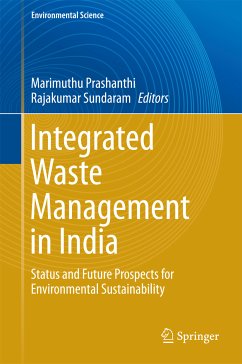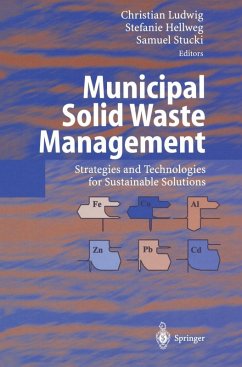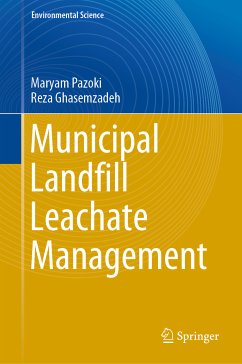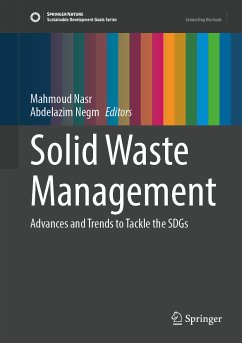
Technical Landfills and Waste Management (eBook, PDF)
Volume 1: Landfill Impacts, Characterization and Valorisation
Redaktion: Anouzla, Abdelkader; Souabi, Salah
Versandkostenfrei!
Sofort per Download lieferbar
144,95 €
inkl. MwSt.
Weitere Ausgaben:

PAYBACK Punkte
72 °P sammeln!
A "zero waste" society and the "circular economy" trend are urgently needed. Even if achieving 100% trash recycling and a fully circular economy may not always be attainable, aiming toward this goal might result in a sustainable future. Municipal solid wastes pose a hazard to the environment because of open burning, landfills, reckless disposal, and many other factors. Waste is being thrown away in more significant quantities and is made up of several different materials. Municipal solid waste (MSW) characteristics must be carefully considered when developing, implementing, or modifying solid ...
A "zero waste" society and the "circular economy" trend are urgently needed. Even if achieving 100% trash recycling and a fully circular economy may not always be attainable, aiming toward this goal might result in a sustainable future. Municipal solid wastes pose a hazard to the environment because of open burning, landfills, reckless disposal, and many other factors. Waste is being thrown away in more significant quantities and is made up of several different materials. Municipal solid waste (MSW) characteristics must be carefully considered when developing, implementing, or modifying solid waste management systems. Local waste variables that vary with cultural, climatic, socioeconomic, and institutional capacities are crucial for developing efficient waste management techniques.
This book provides a comprehensive overview of landfills' situation, their categories, and the types of garbage they receive. The final section of the study provides an overview of prospective waste management techniques, their restrictions, and the potential areas for further research on landfill sites. This book has the advantage that world-class experts in their respective fields have written each chapter. As a result, this book presents a balanced picture across the whole spectrum of chapters on municipal solid wastes.
This book provides a comprehensive overview of landfills' situation, their categories, and the types of garbage they receive. The final section of the study provides an overview of prospective waste management techniques, their restrictions, and the potential areas for further research on landfill sites. This book has the advantage that world-class experts in their respective fields have written each chapter. As a result, this book presents a balanced picture across the whole spectrum of chapters on municipal solid wastes.
Dieser Download kann aus rechtlichen Gründen nur mit Rechnungsadresse in A, B, BG, CY, CZ, D, DK, EW, E, FIN, F, GR, HR, H, IRL, I, LT, L, LR, M, NL, PL, P, R, S, SLO, SK ausgeliefert werden.



